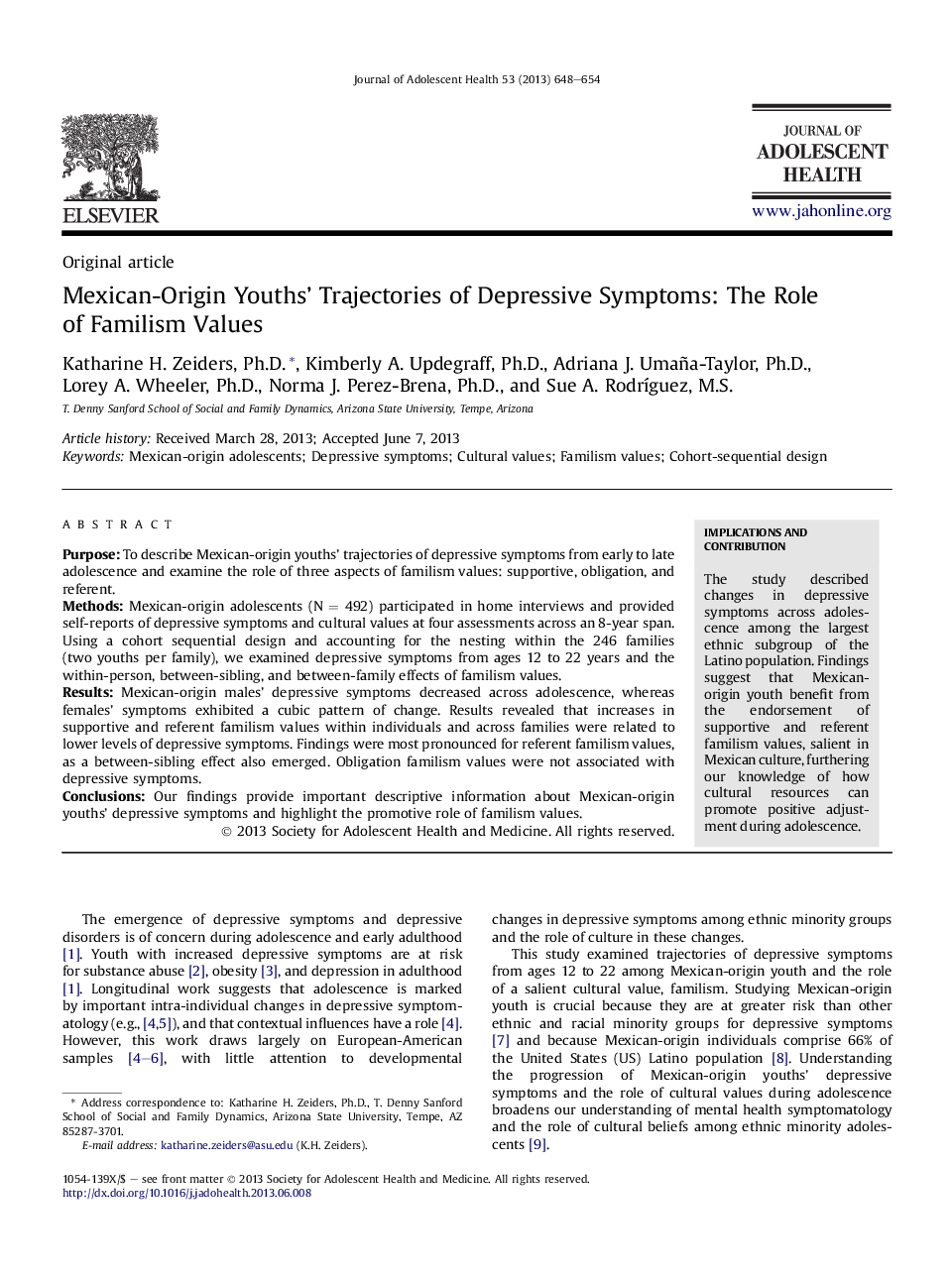| Article ID | Journal | Published Year | Pages | File Type |
|---|---|---|---|---|
| 1079117 | Journal of Adolescent Health | 2013 | 7 Pages |
PurposeTo describe Mexican-origin youths' trajectories of depressive symptoms from early to late adolescence and examine the role of three aspects of familism values: supportive, obligation, and referent.MethodsMexican-origin adolescents (N = 492) participated in home interviews and provided self-reports of depressive symptoms and cultural values at four assessments across an 8-year span. Using a cohort sequential design and accounting for the nesting within the 246 families (two youths per family), we examined depressive symptoms from ages 12 to 22 years and the within-person, between-sibling, and between-family effects of familism values.ResultsMexican-origin males' depressive symptoms decreased across adolescence, whereas females' symptoms exhibited a cubic pattern of change. Results revealed that increases in supportive and referent familism values within individuals and across families were related to lower levels of depressive symptoms. Findings were most pronounced for referent familism values, as a between-sibling effect also emerged. Obligation familism values were not associated with depressive symptoms.ConclusionsOur findings provide important descriptive information about Mexican-origin youths' depressive symptoms and highlight the promotive role of familism values.
